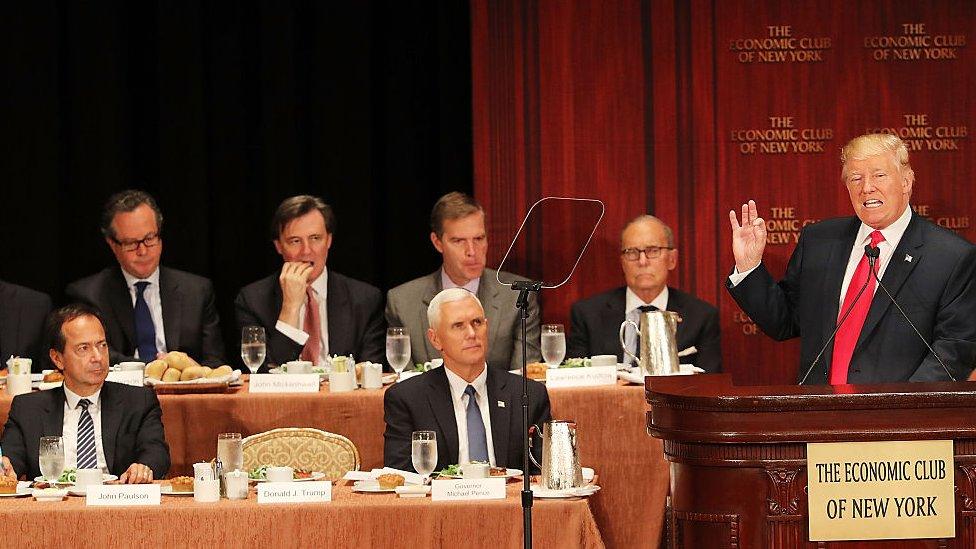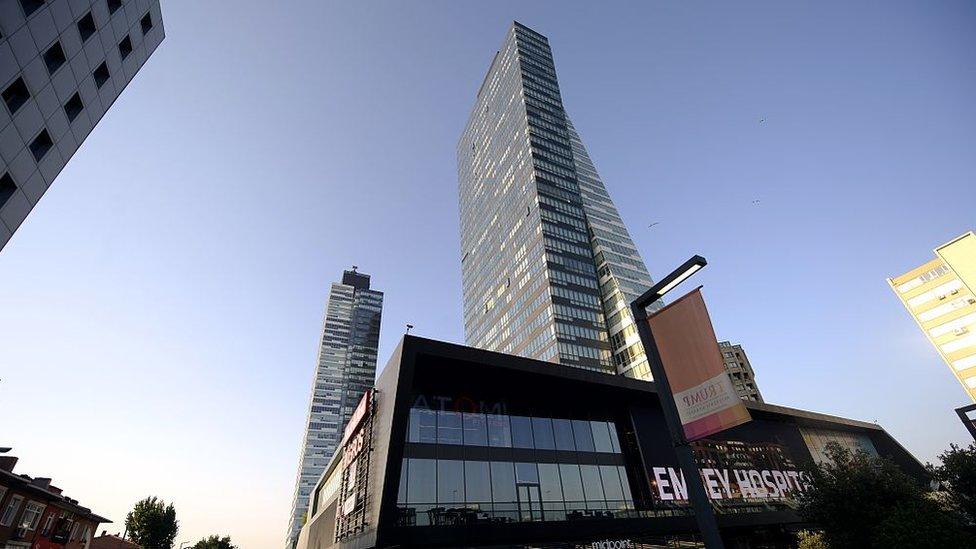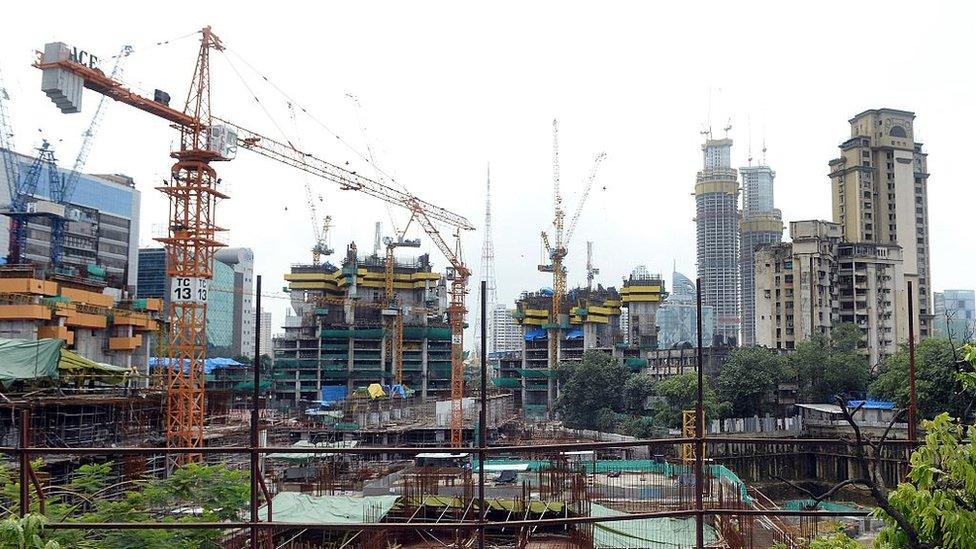Would Donald Trump's business abroad compromise his ability to lead?
- Published

Newsweek magazine details some of the business connections Donald Trump holds with foreign firms, and how it could potentially set up major conflicts of interest for him should he become president.
The cover story, external comes after much coverage of Democratic candidate Hillary Clinton and the Clinton Foundation, amid allegations the foundation was used for rich donors to access to Mrs Clinton and the State Department.
Mr Trump's primary business for a number of years has not been developing and building properties himself, but licensing his name - the "Trump" brand - for real estate developments across the world.
In return, he receives millions of dollars and sometimes profits from future sales.
Author Kurt Eichenwald makes clear that no criminal activity has been detected.
But he argues that many of the Trump Organization's business dealings abroad open up Mr Trump to numerous conflicts of interests should he become president.
For instance, in 2008, Mr Trump entered a licensing partnership with Turkish conglomerate Dogan Holdings, which was planning to build residential and business towers in Istanbul's business district.
President Recep Tayyip Erdogan himself attended the unveiling of Trump Towers Istanbul.

Trump Towers Istanbul
Relations between Dogan Holdings and Mr Erdogan have turned sour since the towers opened in 2012.
Aydin Dogan, the group's chairman, has faced charges of fuel smuggling.
The Dogan family, who own a paper critical of Mr Erdogan, says the charges are politically motivated.
Mr Eichenwald argues the poisoned relationship between Mr Erdogan and the Dogans means Mr Trump would have a direct conflict between his business interests and his relationship with a US ally.
Turkey's importance in the fight against IS and the Syrian civil war makes the stakes much higher.
Dogan Holdings has tried to distance itself from Trump-the-candidate, external, but the business partnership still stands.
In December, Mr Trump said himself, external he had a conflict of interest in discussing Turkey because of Trump Towers Istanbul.
The Republican candidate has said South Korea should stop relying on US military defence, including nuclear weapons.
Mr Eichenwald notes a big player in South Korean nuclear energy - a company that would benefit if South Korea had to up its military spending - is Daewoo Engineering and Construction.
Daewoo Engineering and Construction previously signed a partnership with the Trump Organization.
In Azerbaijan, Mr Trump is president of two companies as part of a real estate deal in Baku.
His partner is a holding company controlled by Anar Mammadov.
Mr Mammadov is the son of the Azerbaijan's transportation minister, who appears in the Wikileaks diplomatic cable leaks.

A Trump-branded (but not owned) project in Mumbai
The development in Baku has been put on hold and neither of the Mammadovs have been charged, but the partnership remains.
Mr Trump has deals in several other countries, like India and the United Arab Emirates, where his decision-making power as commander-in-chief could impact his business.
He has said he will "cut ties" with the Trump Organization if he is president, and leave his children and other executives to run the company.
That's not enough, according to CNN, external, which interviewed financial experts on both sides of the aisle.
"Trump would still know where his family properties are located in the US and overseas, and as president, would be in a position to make decisions on the economy and foreign policy that could benefit his family's fortunes," according to an article on CNN's website.
To compound the problem, says the Washington Post, it's hard to know what other potential conflicts exist.
"There have been wealthy presidential candidates before, but never any who had the kind of complex and far-reaching business Donald Trump does.
"And yet Trump, from whom disclosure is the most critical, is the one who refuses to release his tax returns or details about his business," writes Paul Waldman, external.
The Republican nominee has declined to release his tax returns, citing an ongoing audit.
Vice News has sued in court to get the IRS to release the tax returns, external through a freedom of information act request.
That lack of disclosure should be "disqualifying", writes Waldman.